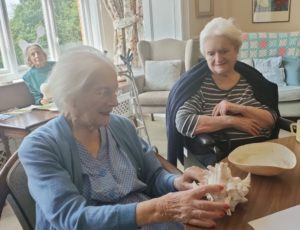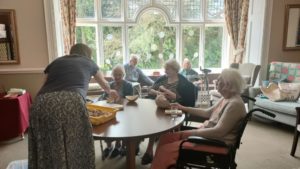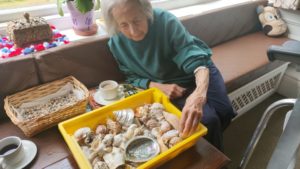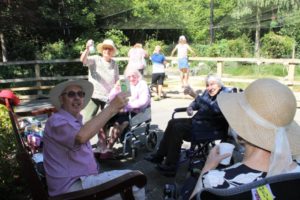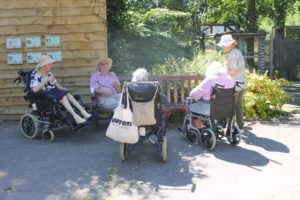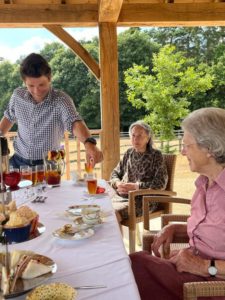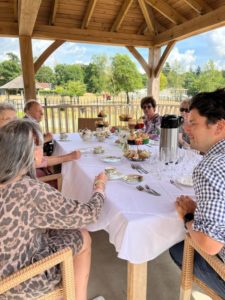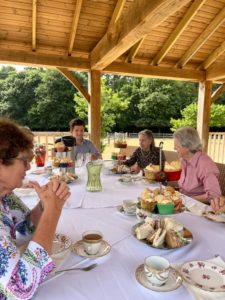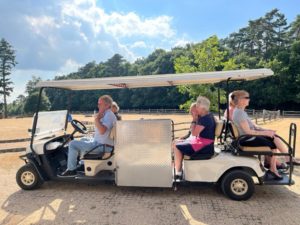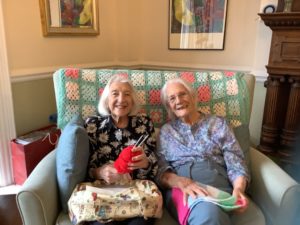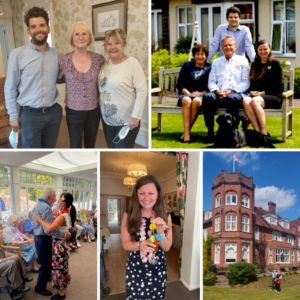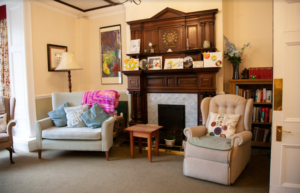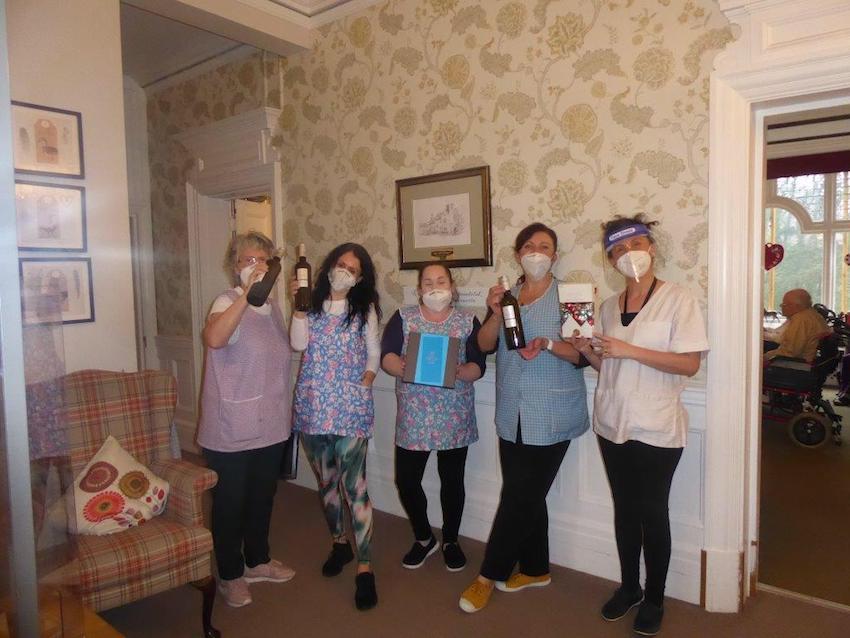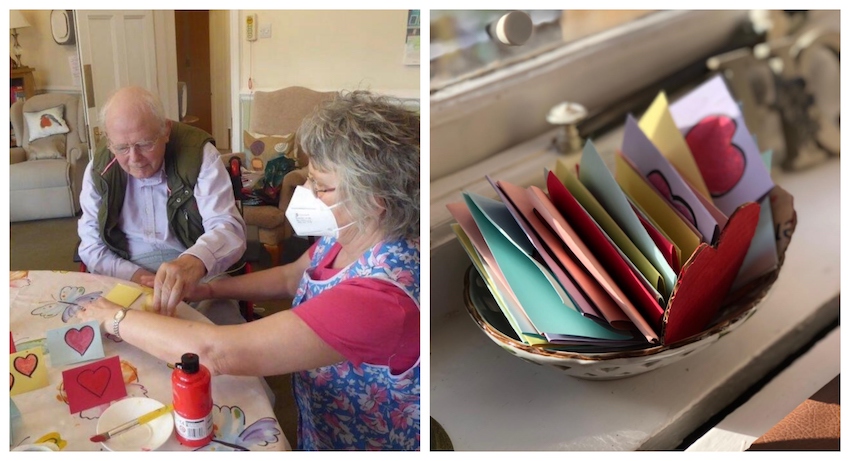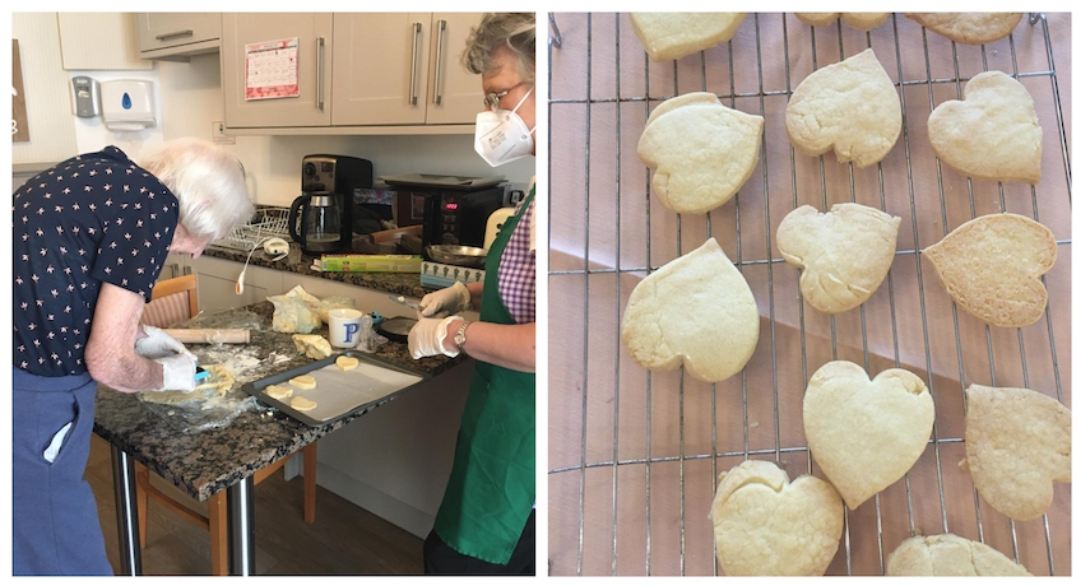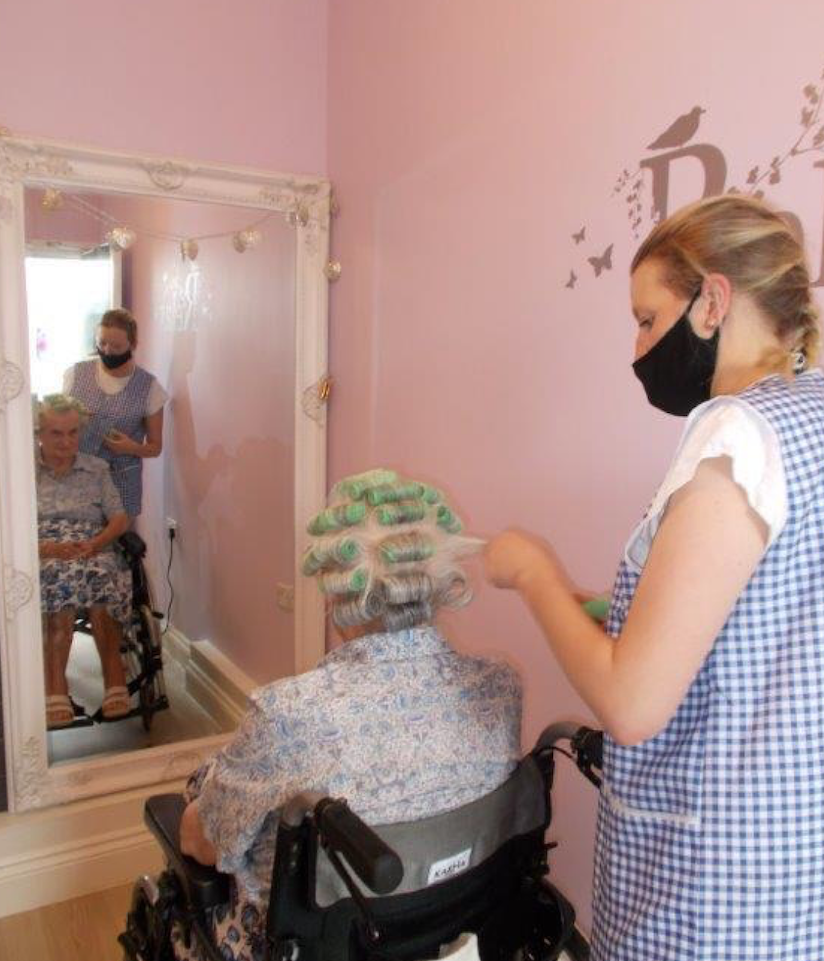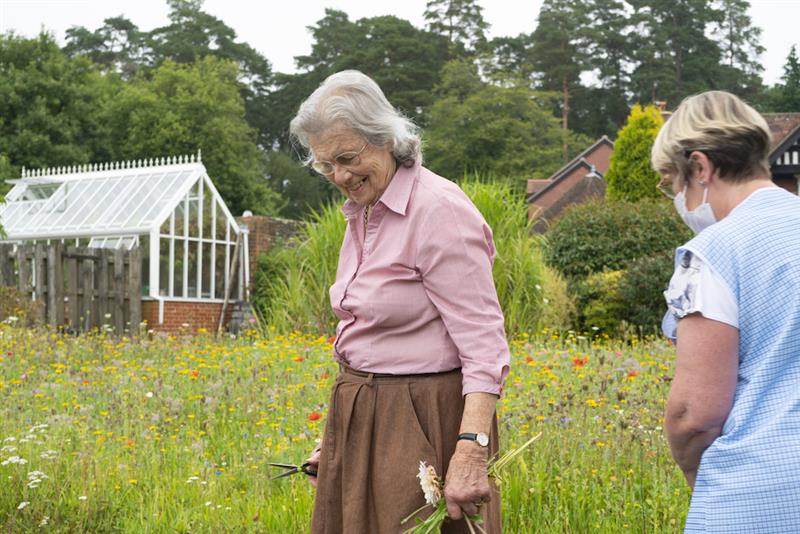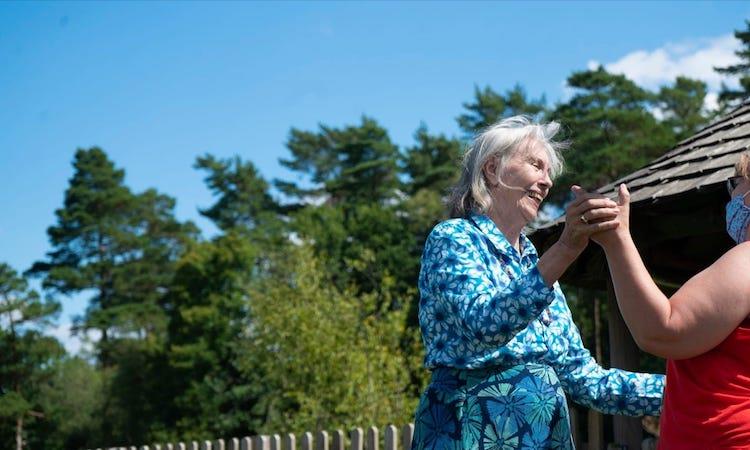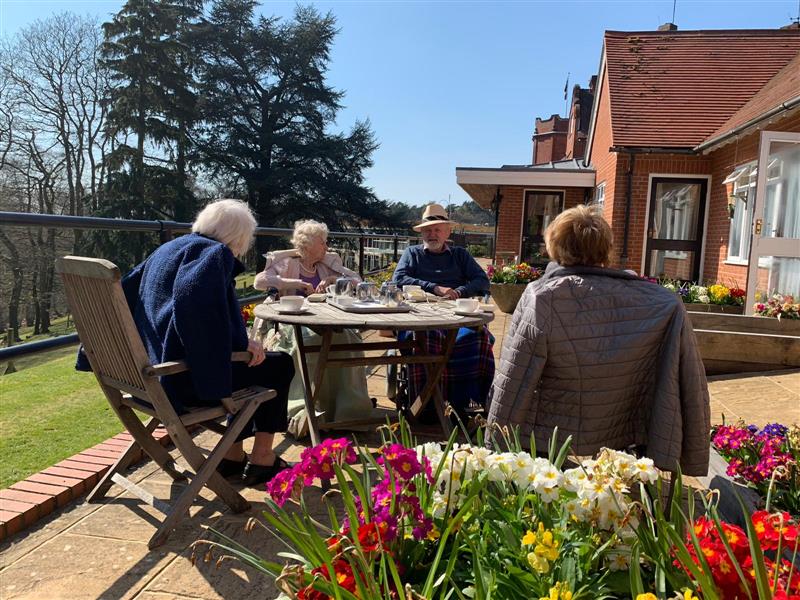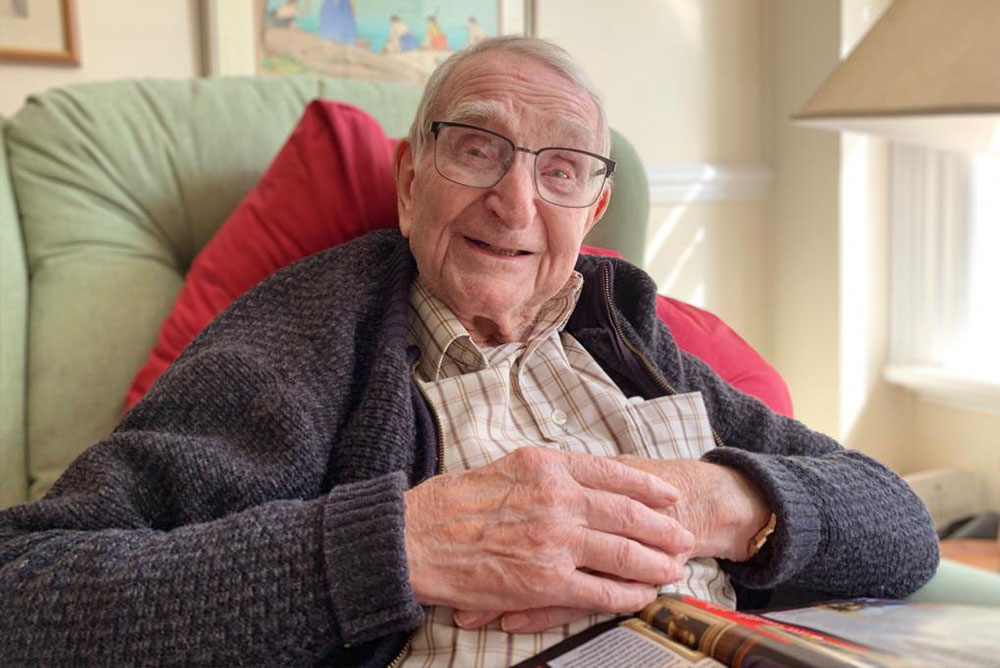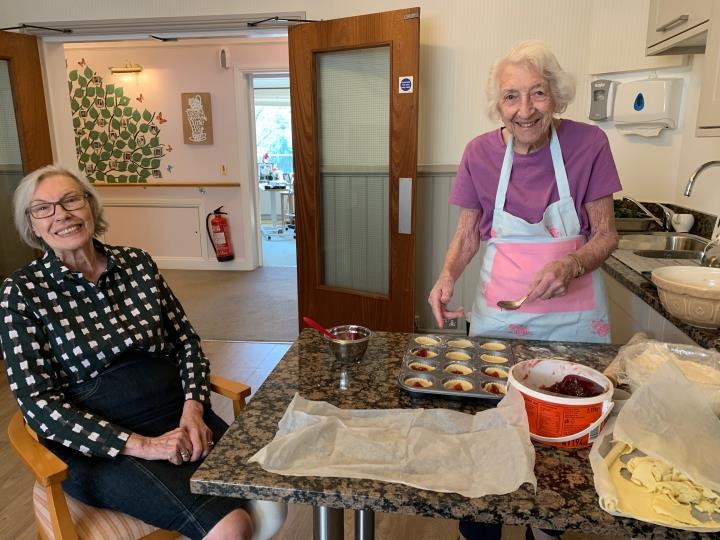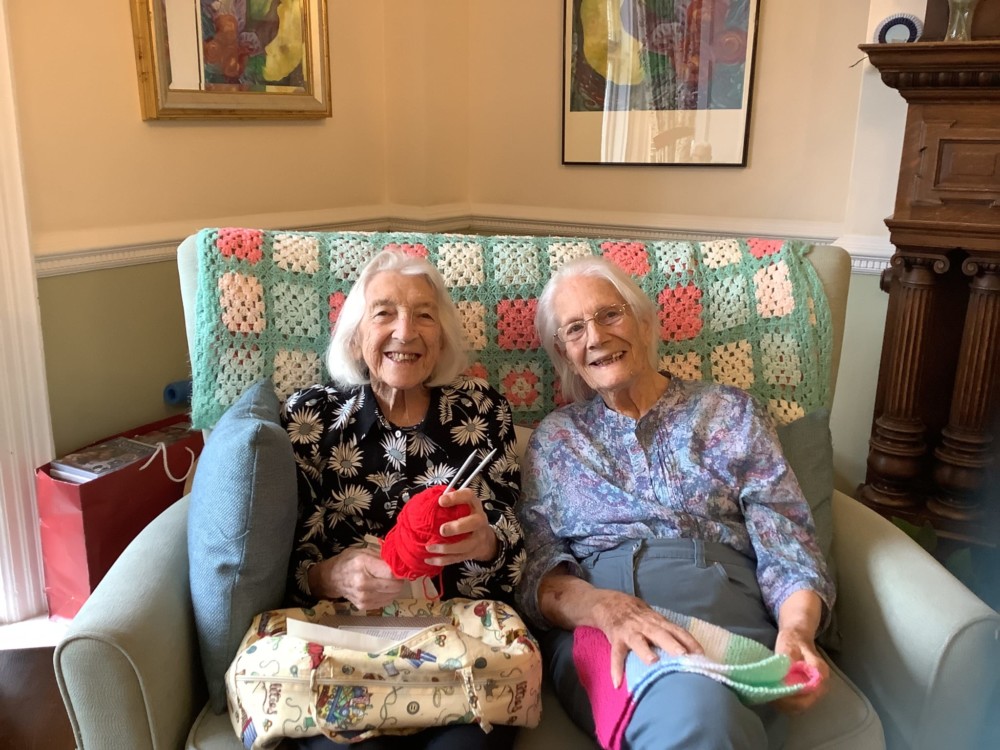In seeking ways to boost our lifestyle, the ultimate aim is to create a healthier and happier version of ourselves. As you enter into old age, there are so many positives to draw upon.
Living life to the full whatever your age
You’re less likely to care about other peoples’ opinions, and you have more time to give to the community, and the ones you love. From eating a healthier diet to socialising more often, there are many ways you can make sure you’re living life to the fullest.

Learn to enjoy exercise
Exercise is known to reduce the risk of a number of health conditions, from some cancers to heart disease. It’s been shown to extend our life expectancy, all the while working to improve our quality of life.
Setting a goal to engage in more exercise is a great way to get healthy. It’s one of the best ways you can look after your mental and physical health, and is recommended by most health professionals.
Here at the Huntington & langham Estate, we are blessed with our extensive grounds and woodland trails and actively support all those living in our 2 homes to exercise regularly.
Many of us don’t take pleasure in exerting our bodies – and this can largely be attributed to our lifestyle habits – or in other cases, due to the onset of pain. However, we can adapt the exercise we do to suit personal needs and abilities.
In order to repeat healthy behaviours, we need to feel genuine gratification as a result. When it comes to exercise, this is much easier to achieve when we engage in an exercise that we enjoy. For some, that may be brisk walking though woodlands; for others, it might be a gentle stroll around the garden.
Exercise should become an enjoyable pursuit that you look forward to – and the positive feelings you gain in return will act as your motivators.

It’s a good idea to exercise with a friend wherever you can; you’ll be able to motivate each other, which becomes particularly useful on days where summoning the courage to get active is a little more of a struggle.
Fuel your body with nutrients
Our bodies can’t rely on exercise alone to reach optimum health. It does boost our mental and physical health, yes, but it’s important that this is supported with a healthy, nutritious diet.
Consuming the correct balance of healthy fats, fibre, vegetables and protein will fuel our bodies with the nutrition and energy it needs to fight off a range of health conditions and keep us active.
Our chefs are very experienced and creative in offering a varied menu of meals throughout the week to meet all dietary requirements and inspire people to eat well.
It’s important to remember to eat mindfully, too, reminding ourselves why we’re eating and what purpose it has for our bodies. However, it’s equally as beneficial to eat in the company of others, since this prevents feelings of loneliness – so finding a balance between the two is key.
Try to ensure that your meals are as tasty as they are healthy; you should aim to be as attracted to your meal as you would be to a slice of chocolate cake. You’ll be more likely to stick to a healthy eating regime if you create tasty, wholesome meals that you look forward to devouring.

Stay connected with others
Just like our need for food and water, social interactions boost our mental and physical health in ways that we may not realise. Loneliness is known to trigger mental health conditions such as anxiety and depression, and has unfortunately become commonplace amongst the older generation.
Making the effort to stay connected with others should become a priority. With modern day advances in technology, it’s easier than ever to stay in touch with friends and family members – even those who live far away. Maintaining connections with loved ones helps to retain a sense of purpose which becomes more and more precious with age.
Try and challenge yourself to engage in social interactions on a daily basis – even if it’s just with one person. Seniors who do this are known to be healthier and happier in general, which is important for ensuring a greater quality of life.
If you find that you’re struggling to make friends, consider joining a local community group. You’ll discover likeminded people, offering you the opportunity to create newly found friendships whilst also picking up a new hobby that you might not otherwise have considered.
Learn something new every day
Neuroplasticity is our brain’s ability to continue to grow and develop throughout the course of our lives. This is enhanced when we actively learn new things, boosting our cognitive health and working to improve our level of intelligence.
On a monthly basis we have a programme of activities which stimulate both mind and body, with an emphasis on fun.
Many people like to learn by reading books on a chosen subject, whilst others like to learn by trying a new activity.
However small, learning something new every day can offer a sense of fulfillment, whilst protecting us against a number of cognitive ailments. You could perhaps try learning a new instrument or language, or bake something that you haven’t tried before.
Set a reading goal
Reading is appreciated widely for its ability to broaden our horizons. A fiction book can drift us away to a different place, offering relief from daily stresses. Meanwhile, a non-fiction book can expand our knowledge and offer us different perspectives on life and its complexities.
Books can offer us so much more than TV programmes – and it certainly fits within our resolutions at the estate to become more widely read. For those with sight difficulties, we also encourage the use of audio books.
Reading not only helps to reduce stress levels; it can work to improve our quality of sleep, as well as lower the rate of cognitive decline. If you’re not already an avid reader, pick an easy-to-read book and try setting yourself a goal to read 20 minutes each night before going to sleep.

Become part of your community
There really is something to be said for community spirit. People who voluntarily give their time to improving their local area are well respected and in return, gain boosted feelings of self esteem. To get started, consider offering your volunteering services to local shops or events; you can listen to radio updates and read newspapers to stay updated.
Alternatively, consider donating old items – such as clothes, bedding, food and books to places in need. These can include animal shelters, food banks, libraries and charity shops.
We’re really excited to be on the cusp of the beginning of a new year at Huntington and Langham Estate. For us, this acts as a time for reflection whilst looking towards the future, thinking about how we can continue to make positive contributions to our residents’ lives and the wider community.

What positive changes will you make to your life in the new year? We’d love to hear your thoughts. Let us know on our social media channels!
